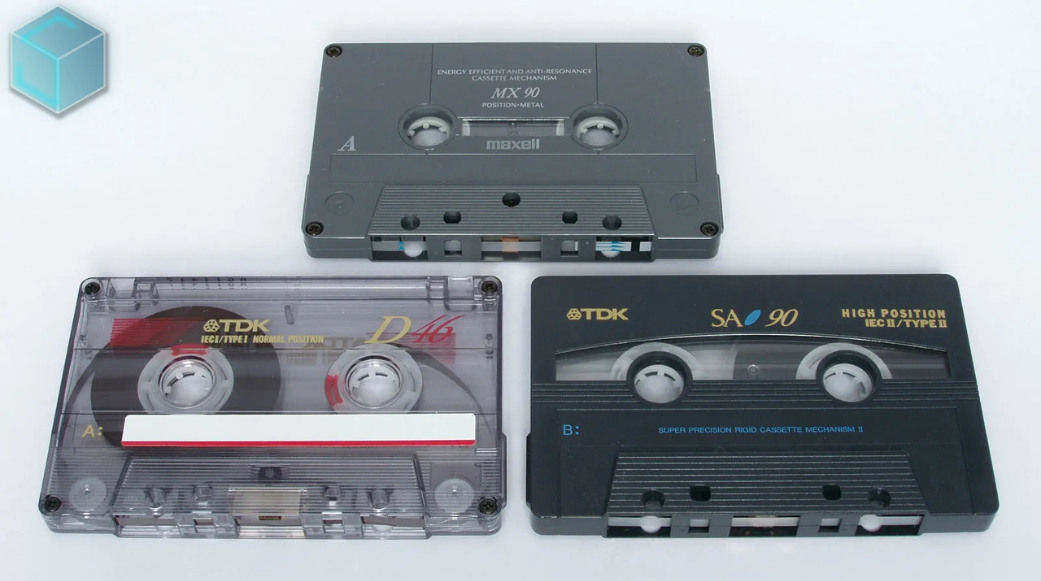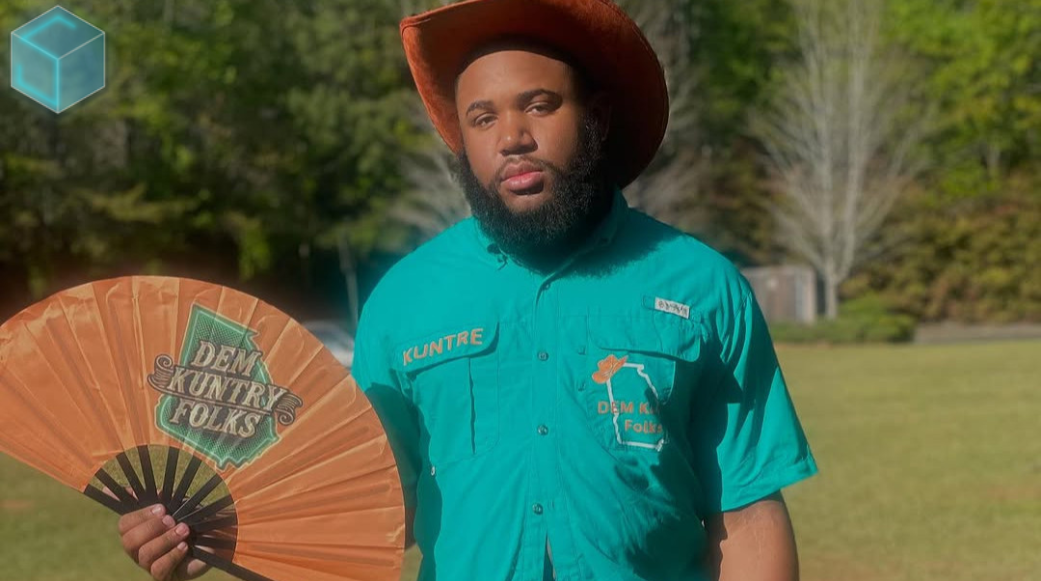
October 23, 2025
Discover how Mix Master strengthens your brain just like an instrument - training focus, creativity, and emotional intelligence through the science of sound.
Read more.png)
September 8, 2025
Tools like Suno are now powerful enough to generate melodies, lyrics, and even full songs in seconds. That’s exciting—and controversial. Just ask Timbaland. Recently, he came under fire..
Read more
August 23, 2025
The 1980s and 1990s analog music medium known as cassette cassettes is experiencing an unanticipated comeback, with Gen Z spearheading the trend. Taylor Swift, who included cassettes in the release...
Read more
August 23, 2025
This week's most notable headline: Doja Cat's erotically charged, '80s-inspired music video, "Jealous Type," is dominating social media feeds and cultural discourse, marking her most daring...
Read more
August 23, 2025
J-hope and GloRilla's "Killin' It Girl," a spectacular blend of K-pop flare and shameless hip-hop heat that has taken the world by storm, is this week's winner of the Best Collaboration of Summer...
Read more
August 23, 2025
Carly Rae Jepsen is giving fans the ultimate gift for the 10th anniversary of her critically adored album Emotion: a special edition featuring four never-before-heard tracks and two fresh remixes...
Read more
August 23, 2025
The wait is over, ARMY! BTS is officially back together and balancing work and play in their first moments of reunion after completing mandatory military service. J-Hope sent fans into a frenzy...
Read more
August 23, 2025
Christian music stepped outside of its quiet comfort zone in 2025. "Hard Fought Hallelujah," a worship song by Brandon Lake, went platinum, sold out festival stages, and exploded from churches to...
Read more
August 23, 2025
In late July 2025, Christian artist Forrest Frank (of Surfaces, now a solo juggernaut in faith-pop) posted from a hospital bed: he’d fractured his L3 and L4 vertebrae in a skateboarding accident...
Read more
August 21, 2025
On September 16, the masked metal phenomenon Sleep Token will embark on their 2025 "Even In Arcadia Tour" across North America. The 18-show tour, which includes a huge date at Brooklyn's Barclays...
Read more
August 21, 2025
Due to a line dance that went viral and won over fans' hearts both inside and outside of the United States, 22-year-old Tre Little's song "Boots on the Ground" has become a cultural sensation this...
Read more
August 21, 2025
In addition to preparing for her next album, The Life of a Showgirl, Taylor Swift is reviving the physical medium this week by putting her songs on cassette tapes. This sentimental action...
Read more.png)
Playing an instrument can be one of the most fulfilling experiences, but it’s natural to feel like you’ve hit a plateau, especially after playing for years. If you’re finding it hard to enjoy playing and feel like you’ve done everything, don’t worry—you’re not alone. Many musicians, even the greats, have experienced burnout. Fortunately, there are ways to make playing fun again and reignite your passion for music.
Let’s explore some strategies to help you find joy in playing once more, with examples from famous musicians who have successfully overcome this problem.
If you’ve been playing the same style of music for a while, it might be time to switch things up. Experimenting with different genres can challenge your skills and introduce you to new rhythms, techniques, and sounds. Whether it’s jazz, classical, funk, or reggae, diving into a different style can make playing feel fresh and exciting again.
Example: John Mayer is known for his versatility in music. While he started his career with pop-rock, he later explored blues, jazz, and even country. This diversity kept his passion alive and allowed him to evolve as a musician. His foray into blues, for instance, brought him a new sense of creativity and purpose when he was feeling uninspired by pop music.
Sometimes boredom comes from sticking to familiar techniques. To break the monotony, try learning new playing techniques or advanced skills that you haven’t yet mastered. Whether it's fingerpicking, complex chord progressions, or experimenting with odd time signatures, pushing yourself to grow technically can make your practice sessions much more engaging.
Example: Jimi Hendrix constantly pushed the boundaries of guitar playing by experimenting with effects pedals, unconventional tunings, and groundbreaking solos. His willingness to explore new techniques allowed him to revolutionize the guitar and stay excited about his instrument throughout his career.
Playing alone can sometimes feel repetitive, but collaborating with other musicians can inject energy and excitement into your playing. Jamming with friends or other musicians can spark creativity and lead to new musical discoveries that you wouldn’t have stumbled upon on your own.
Example: Stevie Ray Vaughan, one of the most iconic blues guitarists, often spoke about the importance of jamming with other musicians to stay inspired. Jamming allowed him to interact with different styles and musicians, which fueled his passion for music and helped him develop his unique sound.
Sometimes, stepping away from your instrument for a short period can actually help reignite your passion. Use that time to listen to new music, attend live shows, or explore other creative outlets. When you return, revisit the basics—relearning simple scales, chords, or songs can help you reconnect with what made you love playing in the first place.
Example: Eddie Van Halen would sometimes take breaks from playing guitar, especially when feeling uninspired. During those breaks, he’d focus on listening to new music and other forms of art. When he returned to his instrument, he’d often go back to basics, which helped him approach his guitar with fresh ears and a renewed sense of joy.
If you’ve been focusing solely on playing songs or practicing specific techniques, try composing your own music or improvising. Creating something new, no matter how simple, can reignite your passion. Improvisation, in particular, allows for spontaneity and freedom, making your instrument feel less like a routine task and more like a creative outlet.
Example: Miles Davis was known for his improvisational genius. He used improvisation as a way to keep his music alive and evolving. In jazz, improvisation is a key part of the experience, and Davis’s constant exploration of new ideas on his trumpet kept his love for music strong throughout his career.
One of the simplest ways to make playing fun again is to jam along with your favorite tracks. Pick songs that you love and try to play them by ear, or find sheet music and play along. You’ll not only improve your listening skills but also find joy in connecting with music that inspires you.
Example: Eric Clapton often credits his love for music to the hours he spent playing along to records by blues legends like B.B. King and Robert Johnson. Reconnecting with the music that inspired him as a young musician helped him maintain his passion for guitar, even after decades of playing.
To keep things interesting, set playful challenges for yourself, like writing a song in a specific key or time signature, learning a complex solo, or playing an entire song backward (just for fun!). Setting these creative goals can keep your mind engaged and bring a sense of accomplishment once you complete them.
Example: Prince was known for constantly challenging himself musically. Whether it was mastering multiple instruments or writing songs in different genres, his desire to push boundaries kept his music fun and innovative. His creative challenges helped him sustain an unmatched level of artistry throughout his career.
Sharing your knowledge by teaching someone else can help you rediscover your passion. Teaching forces you to break down what you know in new ways and reminds you of the excitement that comes with learning something new. It can also be incredibly fulfilling to see someone else develop their skills under your guidance.
Example: Tom Morello, guitarist for Rage Against the Machine, has often spoken about how teaching guitar reinvigorates his love for the instrument. Teaching others reminds him of the basics and helps him appreciate the progress he’s made over the years.
If playing your instrument has started to feel more like a chore than a passion, don’t worry—there are plenty of ways to rediscover the joy you once felt. By experimenting with new genres, collaborating with others, challenging yourself with new techniques, and even taking short breaks, you can breathe new life into your playing.
Many famous musicians have faced similar struggles, but they found ways to reignite their passion for their instruments. You can, too. The key is to keep pushing yourself creatively, stay curious, and remember why you fell in love with music in the first place. Keep exploring, and soon, you’ll find the joy of playing once again.